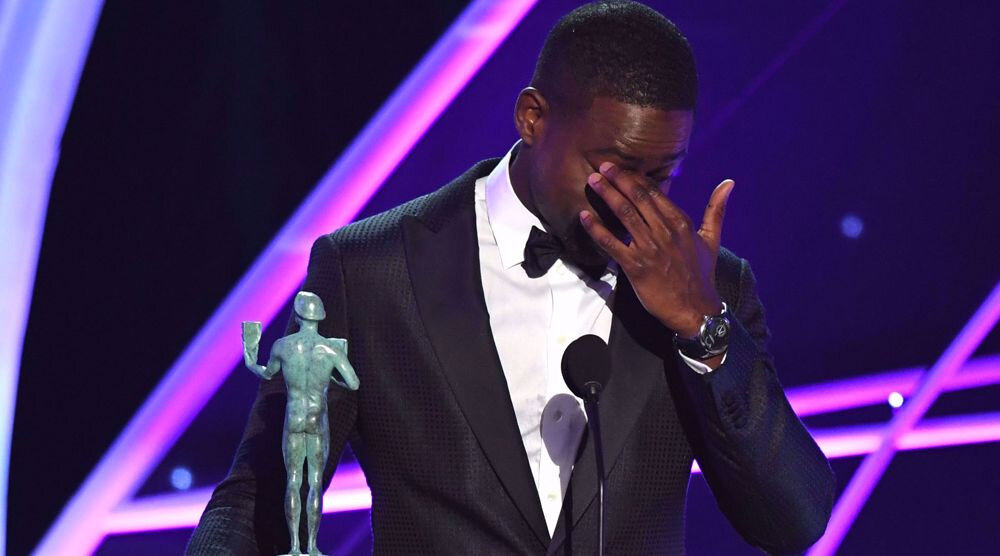Cineasts express sorry over exploitation and exclusion of people of color

Viola Davis, Lin-Manuel Miranda, and Cynthia Erivo joined some 300 actors and playwrights on Tuesday in decrying racism in the U.S. theater world, saying it had been exploited and excluded and diminished people of color.
In an open letter addressed to "Dear White American Theater," the signatories complained of tokenism, prioritizing white theater for white audiences, and a failure to make promised changes in programming or leadership.
"We have watched you use our BIPOC (black, indigenous, people of color) faces on your brochures, asking us to politely shuffle at your galas, talkbacks, panels, board meetings, and donor dinners, in rooms full of white faces," the letter said.
It was addressed not just to theater owners and theater companies but also critics, casting directors, agents, labor unions, and university training programs.
Democrats and Republicans fight over changing the police structure
U.S. Senate Republicans say they are working on their own legislation relating to police reform and social injustice following the death in custody of African American George Floyd last month.
This comes a day after the Democrats unveiled a comprehensive reform package aimed at cracking down on police brutality and recording patterns of misuse of force in the U.S., Press TV reported.
The legislation was led by the Congressional Black Caucus, Democrats on the House Judiciary Committee, and Democratic Sens. Kamala Harris of California and Cory Booker of New Jersey.
House Speaker Nancy Pelosi said that Congress "cannot settle for anything less than transformative structural change."
Also, Congressional Black Caucus Chair Karen Bass said, "The world is witnessing the birth of a new movement in our country."
Their legislation calls for a ban on chokeholds and creating a National Police Misconduct Registry "to prevent problem officers from changing jurisdictions to avoid accountability."
The bill also incentivizes states and localities to make racial bias training mandatory and to teach officers about their "duty to intervene."
The package was likely to face stiff resistance from Republicans, police unions, and local officials who do not want Washington to intervene in their policymaking.
Meanwhile, Republicans, who are accusing Democrats of pushing to defund police departments across the country, introduced a resolution on Tuesday to formally oppose such a plan.
Spearheaded by Sen. Tom Cotton (R-Ark.), the resolution would put the Senate on record opposing the efforts if passed.
Public opinion has moved fast on BLM
According to the New York Times, in the last two weeks, American voters' support for the Black Lives Matter movement increased almost as much as it had in the preceding two years.
American public opinion can sometimes seem stubborn. Voters haven't changed their views on abortion in 50 years. Donald Trump's approval rating among registered voters has fallen within a five-point range for just about every day of his presidency.
But the Black Lives Matter movement has been an exception from the start.
Public opinion on race and criminal justice issues has been steadily moving left since the first protests ignited over the fatal shootings of Trayvon Martin and Michael Brown. And since the death of George Floyd in police custody on May 25, public opinion on race, criminal justice, and the Black Lives Matter movement has leaped leftward.
Over the last two weeks, support for Black Lives Matter increased by nearly as much as it had over the previous two years, according to data from Civiqs, an online survey research firm. By a 28-point margin, Civiqs finds that a majority of Americans support the movement, up from a 17-point margin before the most recent wave of protests began.
The survey is not the only one to suggest that recent protests enjoy broad public support. Weekly polling for the Democracy Fund's U.C.L.A./Nationscape survey shows a significant increase in the police's unfavorable views and an increase in the belief that African-Americans face a lot of discrimination.
Perhaps most significant, the Civiqs data is not alone in suggesting that an outright majority of Americans agree with the central arguments of Black Lives Matter.
A Monmouth University poll found that 76 percent of Americans consider racism and discrimination a "big problem," up 26 points from 2015. The survey found that 57 percent of voters thought the anger behind the demonstrations was fully justified, while a further 21 percent called it somewhat justified. Polls show that a majority of Americans believe that the police are more likely to use deadly force against African-Americans and that there's a lot of discrimination against black Americans in society. Back in 2013, when Black Lives Matter began, a majority of voters disagreed with all of these statements.
Trump wanted to fire defense secretary for not using troops against protesters
A report by the Wall Street Journal revealed that Donald Trump wanted to fire Mark Esper last week after the defense secretary balked at the commander in chief's plan to use active-duty military personnel to quell civilian unrest. Officials told the WSJ that Trump was furious with Esper for not backing his idea to use troops to thwart protests in Washington, D.C., Minnesota, and elsewhere following the killing of George Floyd in Minneapolis on May 25.
Trump consulted advisers to ask about firing Esper, his fourth defense secretary, since taking office, according to the unnamed officials.
But the advisers warned him against the move, and Trump shelved the plans to fire Esper immediately, the paper reported.
Esper, aware of Trump's anger, was making his plans to resign over his differences regarding the military's role in civilian affairs, the officials said.
Firing the Pentagon chief would have meant another major shake-up in the administration during one of the biggest security crises of Trump's presidency.
Leave a Comment